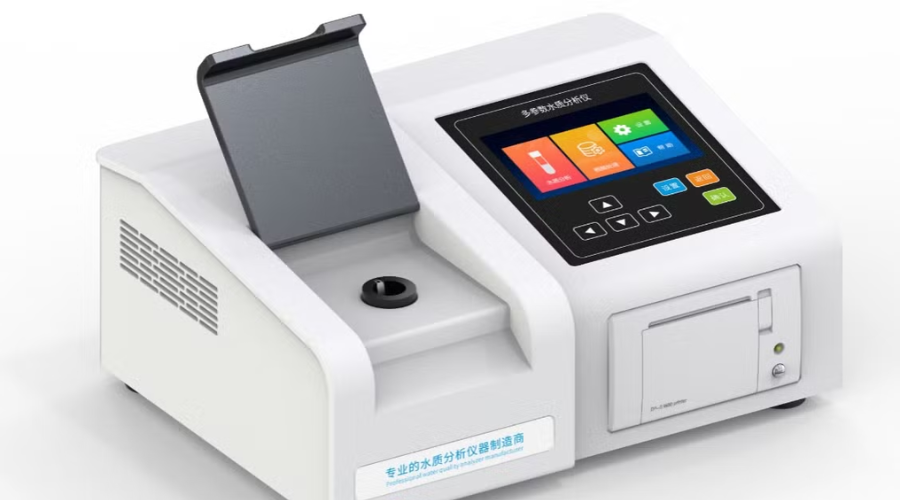 Welcome to Shanghai K&A Environmental Technology Co., Ltd website
Welcome to Shanghai K&A Environmental Technology Co., Ltd website
 Welcome to Shanghai K&A Environmental Technology Co., Ltd website
Welcome to Shanghai K&A Environmental Technology Co., Ltd website

In today's dense industrial environment, water is far more than a commodity resource- it is an utterly significant ingredient that can make or break the operational success of your facility. Be it manufacturing plants or food processing facilities, water quality is a prime differentiator in determining product integrity, the longevity of equipment, and regulatory compliance. This is where water analyzers emerge as game-changing technological solutions, providing unprecedented insights into your facility's most fundamental resource.
But water can be deceptively simple, its constitution amazingly complicated and quietly problematic. Poor water quality can silently undermine your operations, causing everything from equipment damage to product contamination via cascading problems. Just think about the undetected mineral buildup that eats away at expensive machinery or subtle chemical imbalances that affect your final product quality- these qualities. These are the nightmares comprehensive water testing can help prevent.
Modern facilities face an ever-increasing set of regulatory requirements and higher performance expectations. The water analyzer has moved from an optional luxury to an indispensable tool for proactive management. It provides real-time, accurate monitoring far beyond the conventional methods of testing and gives a complete perspective of the basic characteristics and risks represented in your water.
The most telling sign that your facility needs some advanced monitoring equipment is recurring water quality issues, such as inconsistent pH levels, turbidity surprises, or regular contamination events. Traditional testing methods often only provide snapshots, which miss these critical fluctuations, emphasizing how advanced water analyzers bring continuous, accurate monitoring.

Symptoms such as inexplicable equipment scaling, product quality variations, or even periodic maintenance problems are usually symptoms of an underlying water quality problem. The presence of a dedicated water analyzer has the potential to turn all these indices of crises into a commonplace, predictable process backed by instant, actionable insights.
Some industries exist under microscopic regulatory scrutiny where water quality isn't just important- it's required. Food processing, pharmaceutical manufacturing, and wastewater management all require the highest attention to water quality documentation. Water analyzers aren't just instruments but your compliance partners in creating robust, defensible data that paints a picture of your commitment to safety and standards.
Facilities could avoid potential compliance issues by addressing violations by implementing comprehensive water testing protocols. The suitable water analyzer gives you your first line of defense against regulatory complications.
The chemical content of water directly influences the performance and service life of equipment. Very hard water with high levels of minerals can cause a disastrous scaling problem in pipes and machinery, while acidic or alkaline water promotes corrosion. These silent destroyers can reduce equipment efficiency and lifespan, leading to expensive repairs and replacements.
Water analyzers provide a predictive maintenance approach whereby facilities are allowed to conceptualize precisely the chemical makeup of water and take a preemptive approach. The possible problems these devices could detect may save thousands in sudden, unscheduled repair and replacement costs.
Water quality requirements are increasingly nuanced as facilities expand into more diversified processes. Each new manufacturing line, expanded production capability, or introduction of advanced technology can require higher specifications for water. A water analyzer plays an important role in maintaining consistent quality during these transformational times.
Whether increasing production or introducing more complex processes, a state-of-the-art water monitoring system will ensure water quality meets even the most exacting operational standards.
Perhaps the most critical evidence for the need for a water analyzer is consistent customer feedback about the quality of the product. Water is used in many industrial processes, and even slight changes can significantly affect final product characteristics. Quite often, customer complaints about taste, consistency, or performance find their causal relationship with water quality.
Those facilities that have instituted rigorous water testing protocols demonstrate a quality commitment that engenders consumer confidence and protects brand reputation.
When choosing a water analyzer, the most essential elements to focus on will include:
Portability, ease of use The precision and accuracy of the measurements
Specific testing capabilities relevant to your industry Integration with existing monitoring systems Long-term maintenance and support needs The best way to ensure that you get the suitable water analyzer for your facility is by partnering with a good supplier-one that understands business and many unique challenges within the industry.
Investment in Quality and Efficiency Water analyzers represent more than technological investments-they are strategic tools for comprehensive facility management. By recognizing these five critical signs and taking proactive steps, one can transform water from a source of potential risk into a precisely managed resource.